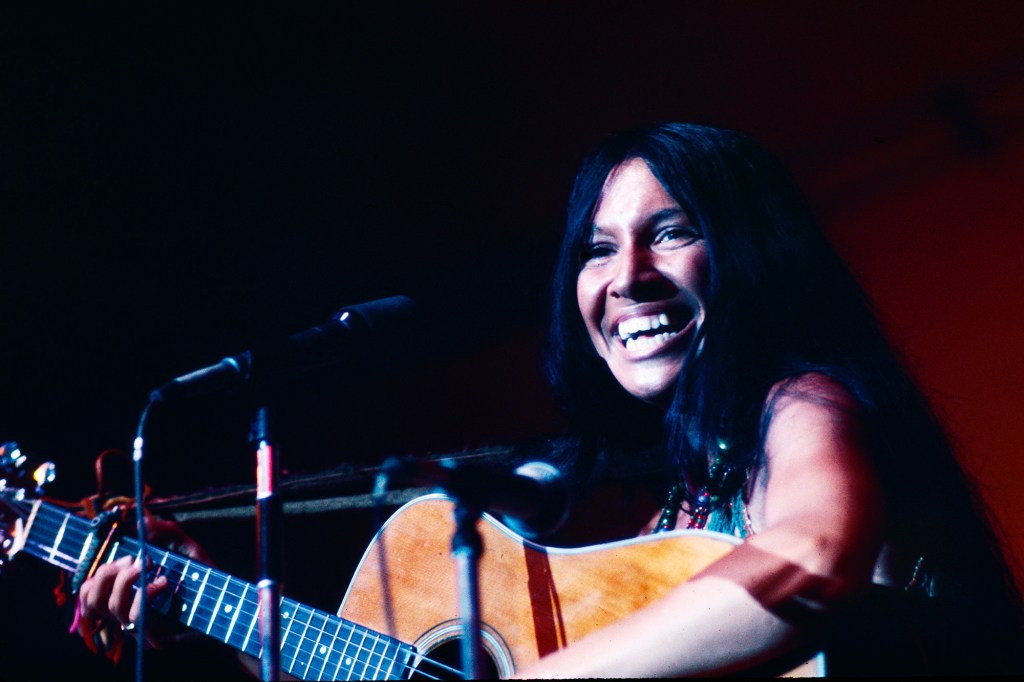Folk singer Buffy Sainte-Marie’s Indigenous roots questioned
Oscar-winning folk singer Buffy Sainte-Marie has long been viewed as a barrier-breaking, Indigenous icon — but a recent news investigation has raised doubts over her Indigenous roots.
A Canadian Broadcast Corporation feature on the singer-songwriter has led to accusations that Sainte-Marie is a “pretendian” — the term coined for people who fake having Indigenous ancestry.
Sainte-Marie, 82, claimed that she was born on a Piapot Cree reservation in Canada and was adopted by white parents as part of the country’s infamous Sixties Scoop in which Indigenous children were removed from their families and adopted by white families in a government policy of forced assimilation.
But the recent CBC report cites a birth certificate that states the singer was born “Beverly Jean Santamaria” in Stoneham, Massachusetts to parents of European lineage.
It also quotes several family members who claim “her story is an elaborate fabrication.”
Sainte-Marie shared her Cree culture with youths across the nation when she appeared on Sesame Street in the 1970s and she has won numerous awards including an Oscar in 1983 for co-writing the song “Up Where We Belong” — for which she became considered the first Indigenous person to win the prestigious award.
She rose to success among other folk singers in the early 1960s and has reappeared in pop culture in recent years thanks to exhibits, podcasts and documentaries on her life legacy and work fighting for Indigenous people.
In 2021, Sainte-Marie’s face even appeared on a Canadian stamp.
The significance of her role within Indigenous communities, especially those in Canada, made her potential fraud all the more shocking and hurtful to members of those communities who feel their heritage, pain and history were stolen for her advantage.
“It’s theft of opportunities, resources. It’s theft of our stories,” Indigenous scholar Kim TallBear, a professor of Native studies at the University of Alberta in Edmonton, told CBC.

The folk singer called the allegations “hurtful” in a statement released before the CBC report was published, knowing what was to come.
She wrote that what she knows of her Indigenous ancestry, she learned from her “growing up mother” and her own research later in life.
“My mother told me many things, including that I was adopted and that I was Native, but there was no documentation as was common for Indigenous children born in the 1940’s,” Sainte-Marie said.
She added that she doesn’t know where she is from or who her birth parents were and “will never know.”
What she does know, she said, is that she was adopted by a Piapot First Nation couple, Emile Piapot and Clara Starblanket Paipot, “in accordance with Cree law and customs” as a young adult.
Sainte-Marie adds another name to a growing list of prominent Indigenous figures whose ancestry has been questioned as fraudulent, including Sacheen Littlefeather — whose apparent lies were outed by her sisters after her death.
Read the full article Here


